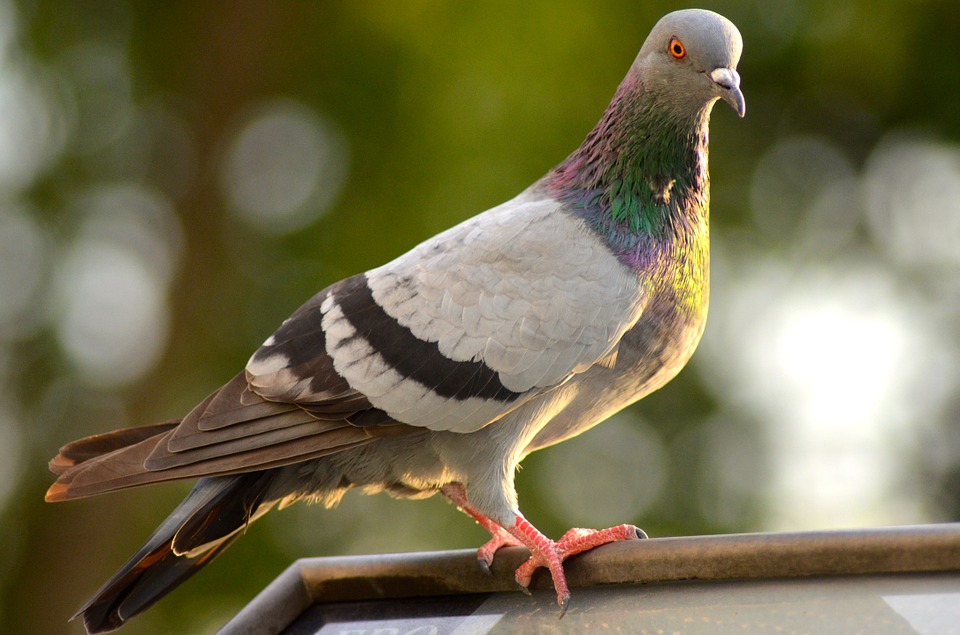Pigeons
Pigeons have been victims of lots of misinformation being spread by the pest control industry. In reality, they are friendly and intelligent birds who breed depending on their food supply.

Traditionally, they inhabited coastal cliffs but have learned to survive in towns and cities, roosting on buildings and clearing up human debris instead. Their cousins, wood pigeons, are equally adaptable. With the loss of much of Britain’s woodland, wood pigeons have become common garden and farm birds.
While many urban dwellers accept that they share their city with pigeons, and welcome this small contact with the natural world, others say that pigeons are messy and claim that they spread disease. Pest control agencies are especially keen to argue that pigeons pose a health risk, despite a lack of evidence.
In reality, birds such as chickens, who are raised in crowded factory-farmed conditions, are more likely to infect people with both salmonellosis and toxoplasmosis when they are eaten, than are live pigeons wandering around a town.
Culling pigeons, either by poisoning or shooting, is inhumane and ineffective. Killing adult pigeons gives the younger birds a better chance of survival and allows breeding to continue. In a matter of weeks, numbers can quickly return to pre-cull figures.
We encourage tolerance and compassion, but where pigeons are not welcome, there are humane ways to control their numbers. Clearing away food and encouraging the birds to roost in more convenient locations can be a huge help, as can various products such as Bird-Free gel, and installing anti-perching devices. Take a look at our humane deterrence factsheet.
Find out more fascinating facts about pigeons.Ways to help pigeons
- If your council or another local body is culling pigeons, please follow our five simple actions to challenge a pigeon cull.
- Download our humane deterrence factsheet to give to anyone you know who is thinking of calling in pest controllers to get rid of pigeons (or other birds).
- Please don’t feed town centre pigeons. They will find enough food themselves, and by encouraging them to stay, there is an increased risk of complaints, leading to them being killed.
- Counter any negative publicity in the local and national press by responding with a letter.
- Support your local wildlife rescue centre.